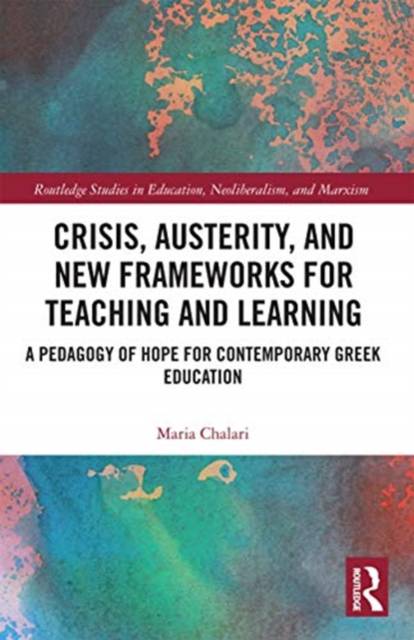
- Retrait gratuit dans votre magasin Club
- 7.000.000 titres dans notre catalogue
- Payer en toute sécurité
- Toujours un magasin près de chez vous
- Retrait gratuit dans votre magasin Club
- 7.000.0000 titres dans notre catalogue
- Payer en toute sécurité
- Toujours un magasin près de chez vous
Crisis, Austerity, and New Frameworks for Teaching and Learning
A Pedagogy of Hope for Contemporary Greek Education
Maria ChalariDescription
This book attempts to examine the educational consequences of the recent social and economic situation in Greece, and it explores--on a general level--new possibilities for teaching and learning at times of national crisis. Using Greece as an exemplary case, Maria Chalari demonstrates how the relationship between neo-liberalism and education is especially salient during difficult times; it also demonstrates the effect of this relationship on teachers' day-to-day experiences. By attending to, yet moving beyond, the negative implications of socio-economic crisis, this volume aims to present core educational values of the current era, as well as the crucial issues that may become opportunities for reflection and change.
Spécifications
Parties prenantes
- Auteur(s) :
- Editeur:
Contenu
- Nombre de pages :
- 140
- Langue:
- Anglais
- Collection :
- Tome:
- n° 19
Caractéristiques
- EAN:
- 9780367728694
- Date de parution :
- 18-12-20
- Format:
- Livre broché
- Format numérique:
- Trade paperback (VS)
- Dimensions :
- 152 mm x 229 mm
- Poids :
- 289 g

Les avis
Nous publions uniquement les avis qui respectent les conditions requises. Consultez nos conditions pour les avis.






